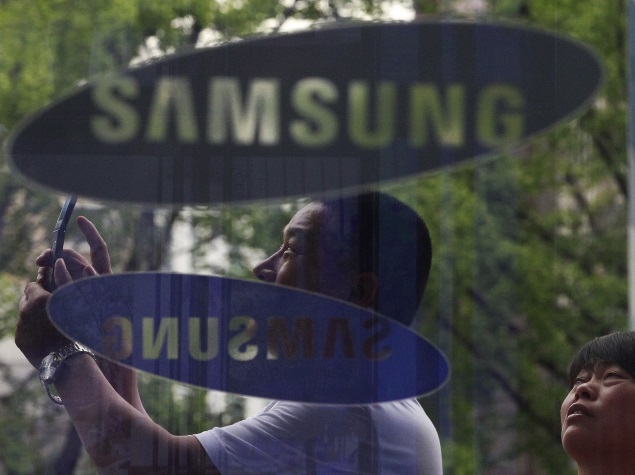- Home
- Internet
- Internet News
- Samsung to Expand Range of Tizen Powered Smart Appliances
Samsung to Expand Range of Tizen-Powered Smart Appliances

The South Korean tech giant is seeking to plough more resources into the so-called Internet of Things (IoT) as the market for smartphones one of its core product categories becomes increasingly saturated.
The new appliances will work on Samsung's Tizen operating system, which the company has touted as a platform not just for phones but for a range of connected home appliances that can communicate with one another.
"We are preparing launches of Tizen-powered TVs, refrigerators, air conditioners and other premium-priced home appliances this year," B.K. Yoon, head of Samsung's consumer electronics unit, told reporters.
The firm the world's top mobile phone maker plans to eventually make all its new products Internet-connected by 2020, he added.
"I think we have to make preparations for the IoT for future growth, as we previously grew in size by switching from... feature phones to smartphones," Yoon said.
Yoon unveiled the company's first-ever Tizen smart TVs at a consumer electronics fair in Las Vegas last month.
As part of its efforts to expand beyond the increasingly saturated smartphone market and meet demand for online-connected homes, Samsung bought SmartThings, a US home automation startup last year.
Tizen Samsung's home-grown system is a key part of the firm's campaign to carve out a niche in mobile software and services, to complement its hardware role.
By developing Tizen, Samsung has also tried to lower its reliance on Google's Android platform that powers the vast majority of Samsung's mobile devices.
But the use of Tizen so far has been limited to a handful of Samsung gadgets including a low-end smartphone and wearables.
Catch the latest from the Consumer Electronics Show on Gadgets 360, at our CES 2026 hub.
Related Stories
- Samsung Galaxy Unpacked 2025
- ChatGPT
- Redmi Note 14 Pro+
- iPhone 16
- Apple Vision Pro
- Oneplus 12
- OnePlus Nord CE 3 Lite 5G
- iPhone 13
- Xiaomi 14 Pro
- Oppo Find N3
- Tecno Spark Go (2023)
- Realme V30
- Best Phones Under 25000
- Samsung Galaxy S24 Series
- Cryptocurrency
- iQoo 12
- Samsung Galaxy S24 Ultra
- Giottus
- Samsung Galaxy Z Flip 5
- Apple 'Scary Fast'
- Housefull 5
- GoPro Hero 12 Black Review
- Invincible Season 2
- JioGlass
- HD Ready TV
- Laptop Under 50000
- Smartwatch Under 10000
- Latest Mobile Phones
- Compare Phones
- Honor Magic 8 RSR Porsche Design
- Honor Magic 8 Pro Air
- Infinix Note Edge
- Lava Blaze Duo 3
- Tecno Spark Go 3
- iQOO Z11 Turbo
- OPPO A6c
- Samsung Galaxy A07 5G
- Lenovo Yoga Slim 7x (2025)
- Lenovo Yoga Slim 7a
- Lenovo Idea Tab Plus
- Realme Pad 3
- Moto Watch
- Garmin Quatix 8 Pro
- Haier H5E Series
- Acerpure Nitro Z Series 100-inch QLED TV
- Asus ROG Ally
- Nintendo Switch Lite
- Haier 1.6 Ton 5 Star Inverter Split AC (HSU19G-MZAID5BN-INV)
- Haier 1.6 Ton 5 Star Inverter Split AC (HSU19G-MZAIM5BN-INV)







![[Sponsored] Haier C90 OLED TV | Dolby Vision IQ, 144Hz OLED and Google TV in Action](https://www.gadgets360.com/static/mobile/images/spacer.png)









